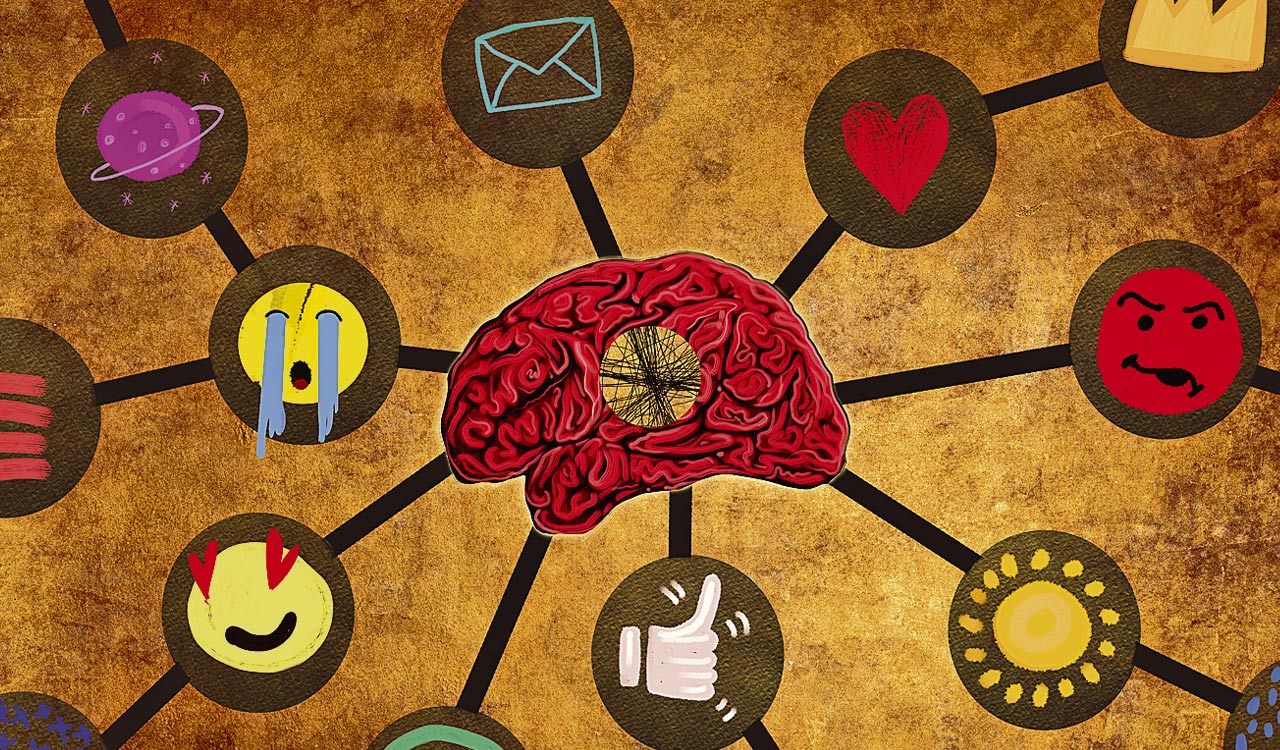Opinion: Emotional intelligence critical
Leaders with EI shape the core values of an organisation’s ethos and have a major impact on productivity

By Vrinda Tuteja, Dr Garima Rajan
Emotional Intelligence (EI) is the processing of emotional data for application in logical thinking and other cognitive tasks (APA Dictionary of Psychology, 2014). It was developed by psychologists Peter Salovey and John D Mayer and comprises four core skills: managing both one’s emotions and those of others to promote growth and wellness; using emotions to improve cognitive function; interpreting emotional expression and using emotional information; and accurately perceiving and evaluating emotions.
Also Read
Important Skill
Emotional intelligence is becoming ever more critical in contemporary workplaces, having a substantial influence on employee productivity and overall well-being. It has come to represent an indispensable aspect of both professional and personal success and goes beyond being merely a soft skill.
Research suggests that a greater degree of emotional intelligence has been linked to better interpersonal interaction and teamwork, as well as increased self-management and empathy for others (Kannaiah et al, 2015). Recognising its significance, organisations are increasingly incorporating emotional intelligence into recruiting and training, actively seeking applicants with high emotional intelligence scores. Additionally, they offer chances for workers to grow and improve their capacity for emotional intelligence via specialised training and development initiatives.
With an expanding focus on interpersonal skills in recruitment and instruction, appointing emotionally intelligent leaders is equally imperative. By striving to create a workplace culture that fosters positivity and inclusivity, encouraging effective communication, promoting overall well-being for both individuals and organisations and creating an environment conducive to innovation, these leaders produce healthier work environments. The attributes of emotionally intelligent leaders shape the core values of an organisation’s ethos and have a major impact on overall productivity.
Positive Space
They leverage qualities like empathy, inclusivity and curiosity about opposing viewpoints to improve work satisfaction and confidence. Simultaneously, they also cultivate an ecosystem of diversity and tolerance that promotes a sense of belongingness and camaraderie. Their competence in recognising and controlling emotions exerts a favourable effect on the five aspects of organisational culture: social cohesion, work challenge, communication, trust and creativity (Subramanian et al, 2013).
Employees who work for emotionally intelligent leaders are far more likely to regard their jobs as intellectually stimulating, experience honest and forthcoming conversations with their superiors, be inspired to creatively experiment, and have pleasant interpersonal interactions with their coworkers. Such managers promote an environment that encourages collaborative effort and the exchange of ideas, which eventually boosts output and creativity.
In response to the significant benefits seen in organisations led by emotionally intelligent people, emotional intelligence must be given top priority when it comes to recruiting, selecting and training leaders. In addition to their personal rewards, leaders with strong emotional intelligence greatly increase the efficacy and productivity of the organisation as a whole. They help contribute towards improved cooperation, communication and employee well-being by cultivating an emotionally mindful and positive culture, which in turn establishes an intrinsically strong and effective organisational ecosystem.
Conflict Resolution
When emotionally savvy managers develop pleasant cultures, their skills in communication and conflict resolution become critical for overcoming obstacles in the workplace (Phipps et al., 2014). Leaders with emotional intelligence are also adept at handling disagreement because they have an elevated level of self-awareness and strong interpersonal skills. They are more equipped to tackle disagreements with a strong combination of logical and emotional backing because they have a greater grasp of and control over their impulses.
Furthermore, their capacity for empathy enables them to empathise with the emotions and opposing points of view of all parties to the dispute, which promotes a more cooperative approach toward dispute settlement.
They employ ways to resolve disputes that heavily rely on efficient interpersonal interaction by placing considerable emphasis on open and transparent discourse, fostering an atmosphere where disagreements and worries may be comfortably expressed (Cui, 2021). This emphasis on honest discourse promotes the sharing of perspectives while also contributing to discovering the underlying causes of the conflict. This helps build the groundwork for long-term conflict resolution and a pleasant work environment, thus improving the organisation’s overall communication and efficacy, leaving the employees heard, valued and respected.
The influence of emotionally intelligent leaders also stretches to improved worker well-being and stress management as they promote candid interaction among their employees. Their profound emotional intelligence helps identify possible vulnerabilities in adverse circumstances, ultimately leading to not merely the acknowledgement, but also intervention, for assistance and supervision (Akerjordet et al, 2008).
A nurturing environment that builds self-assurance and promotes individual intrinsic well-being is heavily contingent on a leader’s capacity to provide guidance. Emotionally competent leaders use their abilities not just to simply magnify existing strengths, but also actively contribute to the collective welfare of a team. This methodology fosters a dynamic and ingenious culture of autonomy, accountability and reciprocating regard among team members, hence expediting the sharing of insights and expertise. Fundamentally, emotionally intelligent leaders transcend academic frameworks and promote perpetual growth and education by acting as catalysts for a work environment that values well-being and collaborative progress, thus stimulating development, creativity and overall fulfilment.
Innovation, Creativity
Lastly, in contemporary organisations, psychologically adept leaders are credited for creating innovative work cultures. Their capacity to recognise, comprehend, and control their own emotions as well as the emotions of others around them allows them to encourage creativity in the workplace. They encourage their fellow employees to look beyond convention and set methods by fostering an uplifting and encouraging environment. Crucially, they understand that innovation never stops, even at the execution stage, and they maintain their openness to unanticipated obstacles or chances that might inspire game-changing concepts.
By encouraging cooperation, acknowledging the value of divergent points of view and regulating the emotional dynamics of their teams, emotionally intelligent leaders place a high priority on the creation of an atmosphere of creativity (Castro et al, 2012). By doing this, they support the organisation’s creativity and inventive energy, which are crucial for preserving a competitive edge in the fast-paced business environment of today.
Finally, the utility of emotional intelligence in leadership cannot be minimised. Through the promotion of positive cultures, the facilitation of effective communication and the prioritisation of employee well-being, emotionally intelligent leaders play a crucial role in creating healthier and more robust work environments (Kannaiah et al, 2015). The growing connection between emotional intelligence and leadership must be emphasised since it has a revolutionary effect on the development of organisations. There is a pressing need for greater understanding of and funding for the development of emotional intelligence in leadership to strengthen the basis of our places of employment. Organisations that prioritise these attributes may create settings that not only withstand hardships but also thrive, with empowered individuals fostering productivity and satisfaction on a group level.
Related News
-
Deadly avalanche kills eight skiers in California
4 hours ago -
Ayodhya priest questions Telangana govt’s Ramzan relief move
4 hours ago -
Titans emerge champions in sixth Samuel Vasanth Kumar memorial basketball tournament
4 hours ago -
Hyd Open golf championship to kick off from February 19
4 hours ago -
Jammu and Kashmir enter Ranji Trophy final with win over Bengal
4 hours ago -
Telangana High Court seeks ground report on forest plantation at Damagundam
4 hours ago -
Sahibzada Farhan century powers Pakistan to big win over Namibia
4 hours ago -
Chief Minister’s Cup 2025 sees record participation across Telangana
4 hours ago





